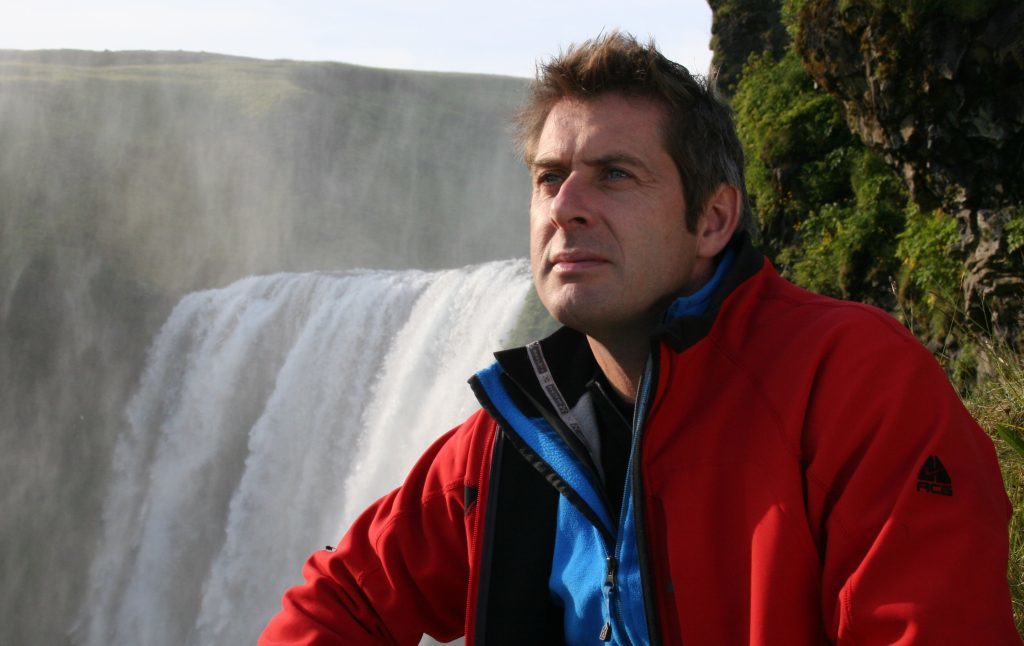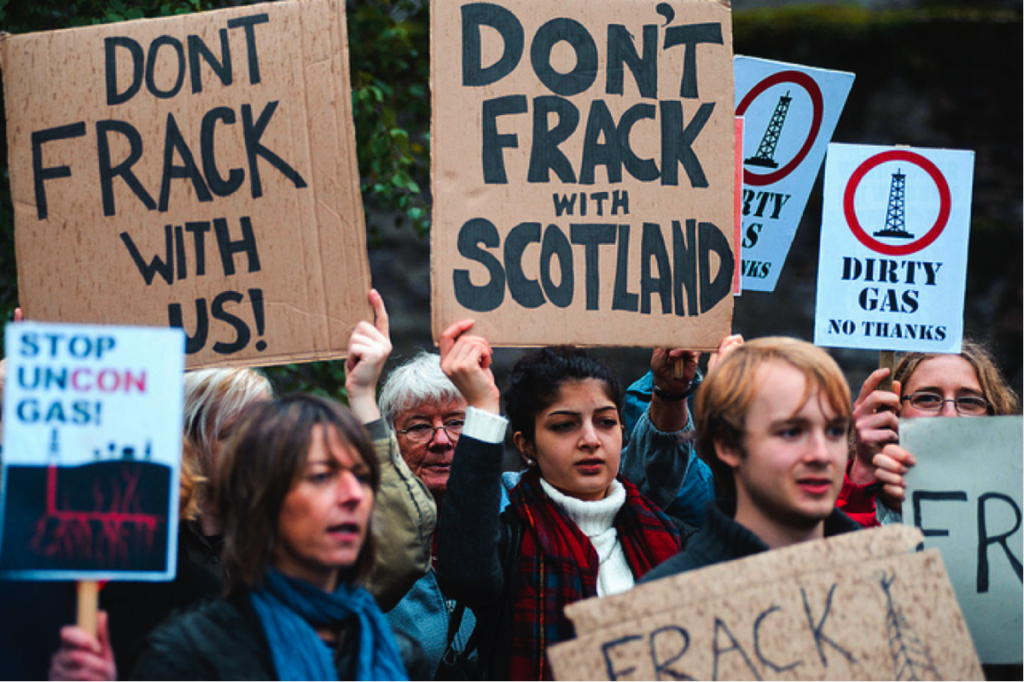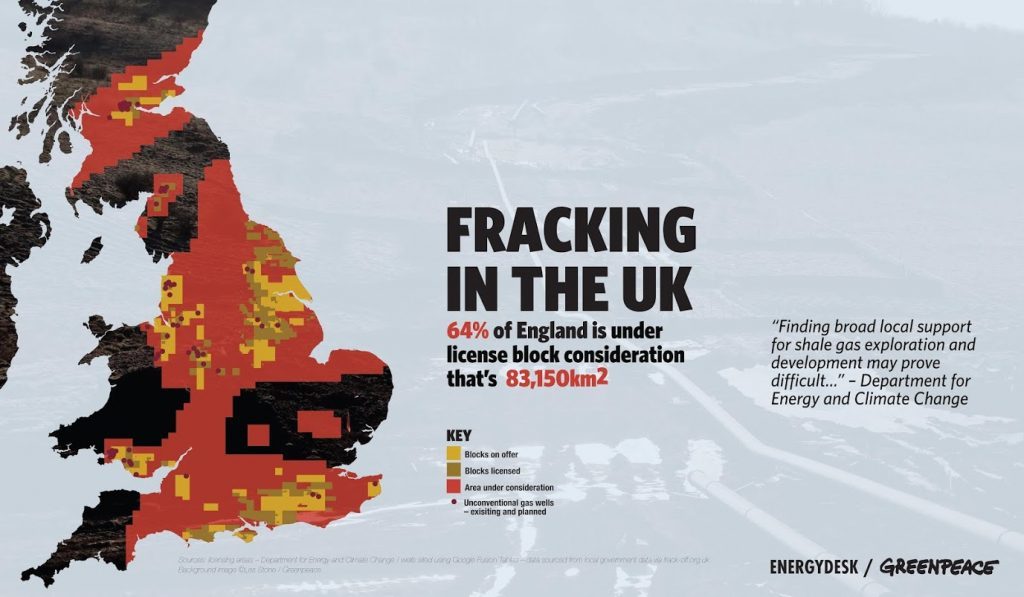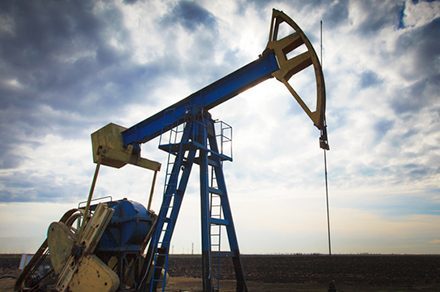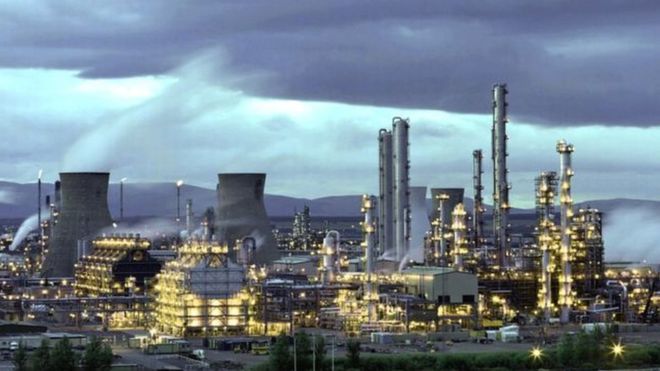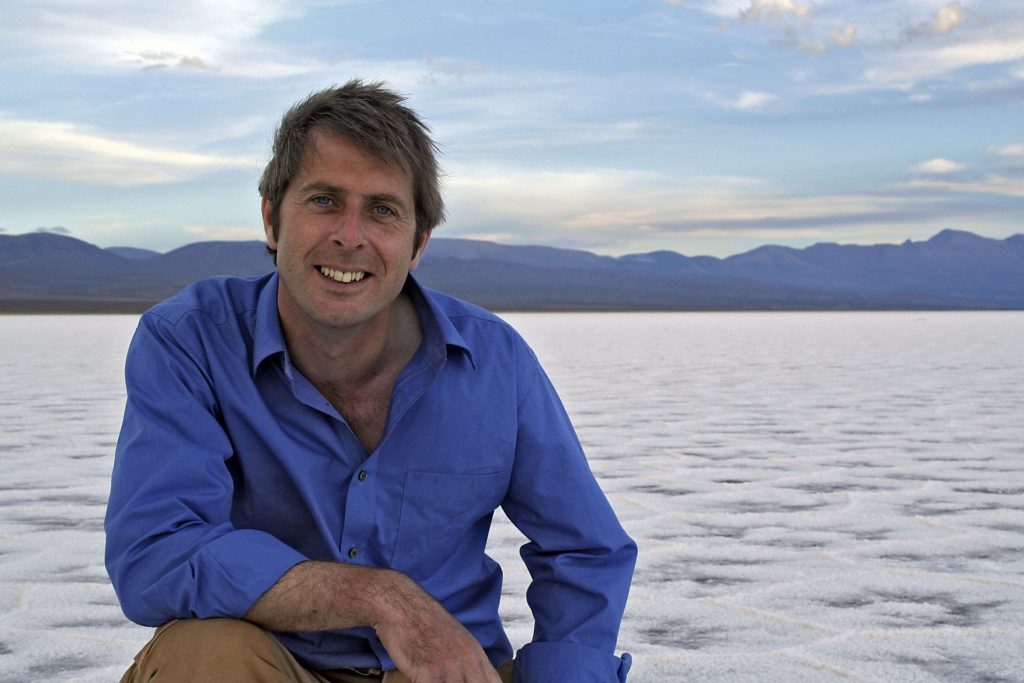TV star geologist Professor Iain Stewart is giving a lecture in Perth on March 14 about the pros and cons of fracking. Michael Alexander spoke to him.
To frack or not to frack may well be the question being posed by ‘rock star’ TV geologist Professor Iain Stewart when he presents a Royal Scottish Geographical Society (RSGS) lecture in Perth.
But if the RSGS president had been choosing another title, he admits he might have gone for ‘Fifty Shades of Grey’ to reflect the “messy” debate surrounding one of the most fractious energy issues of our time.
The Lanarkshire-born 52-year-old, best known to the public as presenter of the BAFTA-nominated BBC science programme ‘Earth: The Power of the Planet’, aims to give an impartial geologist’s look at the pros and cons of this burning issue.
However, he’s conscious that fracking has stirred up strong emotions in many communities – and his aim is to cut through some of the “hyperbole” that surrounds it.
“I’m just trying to tackle head on the issues with fracking which, depending on where you live, and particularly across the Central Belt of Scotland, is a massive issue of concern with people,” he told The Courier.
“I’ll be talking about what the issues are both from a technical and scientific point of view, but also from a wider emotional kind of side.
“Why is it that people have so many objections to it?
“What’s actually going on in the messy middle of the debate, away from the extremes, if you like?
“What kind of energy future do we want?
“Is fracking part of it, and if not, what are we going to tolerate?
“I think in the Scottish context what’s interesting is the transition from a high carbon past to a low carbon future.
“What does that look like? What does that mean for the oil and gas industry? What does it mean for things like wind turbines and solar farms? What does it mean for nuclear?”
With the Scottish Government in the midst of a public consultation about fracking, also known as ‘hydraulic fractuturing’, environmentalists claim that the process of injecting liquid at high pressure into subterranean rocks to extract hard to reach fossil fuels is a risky technique that poses serious risk for the environment, health and climate.
To proponents, however, the process opens up a vast new world of oil and gas reserves that could increase our energy security and provide a much needed economic boost.
Professor Stewart says that because people get so “het up” about it, he can use the topic to get debate going about the very real issues surrounding the country’s energy future.
With companies like Ineos at Grangemouth already importing shale gas from the US to secure the future of the plant’s workforce, it also opens up a wider debate about the economy.
“I think what I’m trying to get at is what kind of energy future does Scotland want?” Professor Stewart added.
“One of the things that makes it interesting is that the energy future might be different in Scotland than it is in the rest of the UK – so for example in Scotland we produce more than enough energy, we export it to the grid down south. We don’t actually need to frack at all.
“Scotland could go one way, and England could go one way – which sounds like a familiar story. But what is the implication of that more broadly?
“It’s a minefield – a minefield that people are talking about anyway – so we may as well discuss it.”
Professor Stewart finds that what often concerns people most is the potential impact of fracking on their local area.
Yet it is not his intention to persuade people one way or the other.
He added:“If people come with extreme views I’m not sure I’m going to convert them.
“For those people who are bamboozled by is it safe? Is it going to kill the environment? Is it going to be the answer to the economic livelihoods in depressed parts of the Central Belt? It’s going to be somewhere in the middle.”
Professor Stewart, who was awarded the MBE for services to geology in 2012, is no stranger to performing.
Long before he became a TV scientist, his first appearance on TV came in 1978 in a BBC Scotland adaptation of John Buchan’s 1922 novel Huntingtower.
He studied geography and geology at Strathclyde University, graduating in 1986 with a first class honours degree – working his way up through academia to become Professor of Geoscience Communication at Plymouth University.
But whilst his ‘weel-kent’ face can be a help, he says there’s always the danger the audience simply want to “know what that guy off the telly thinks”, and then think the same.
“That’s another reason why it’s important to be as impartial as can be,” he added.
“I’m outlining various options but people have to make their own decisions.
“If it helps to have someone off the telly pulling the punters in to sit down and hear it then fantastic – I’ll take that.”
- Professor Iain Stewart: To frack or not to frack? is being held at the Salutation in Perth at 7.30pm on Tuesday March 14.
